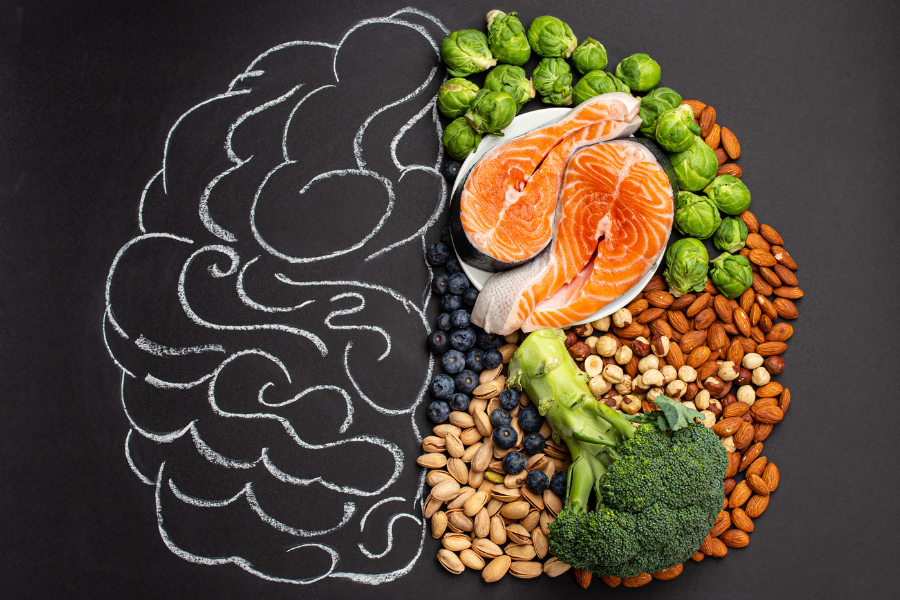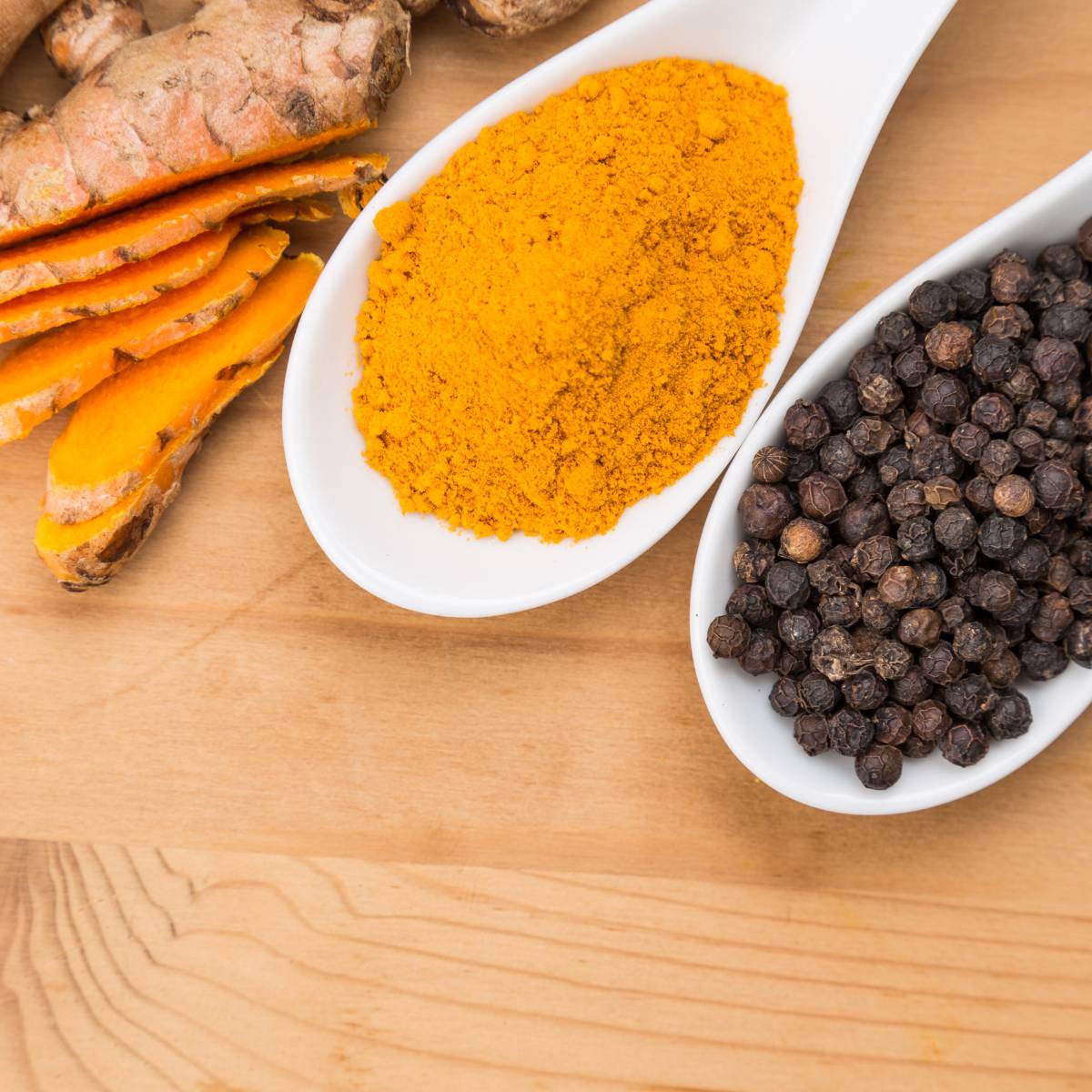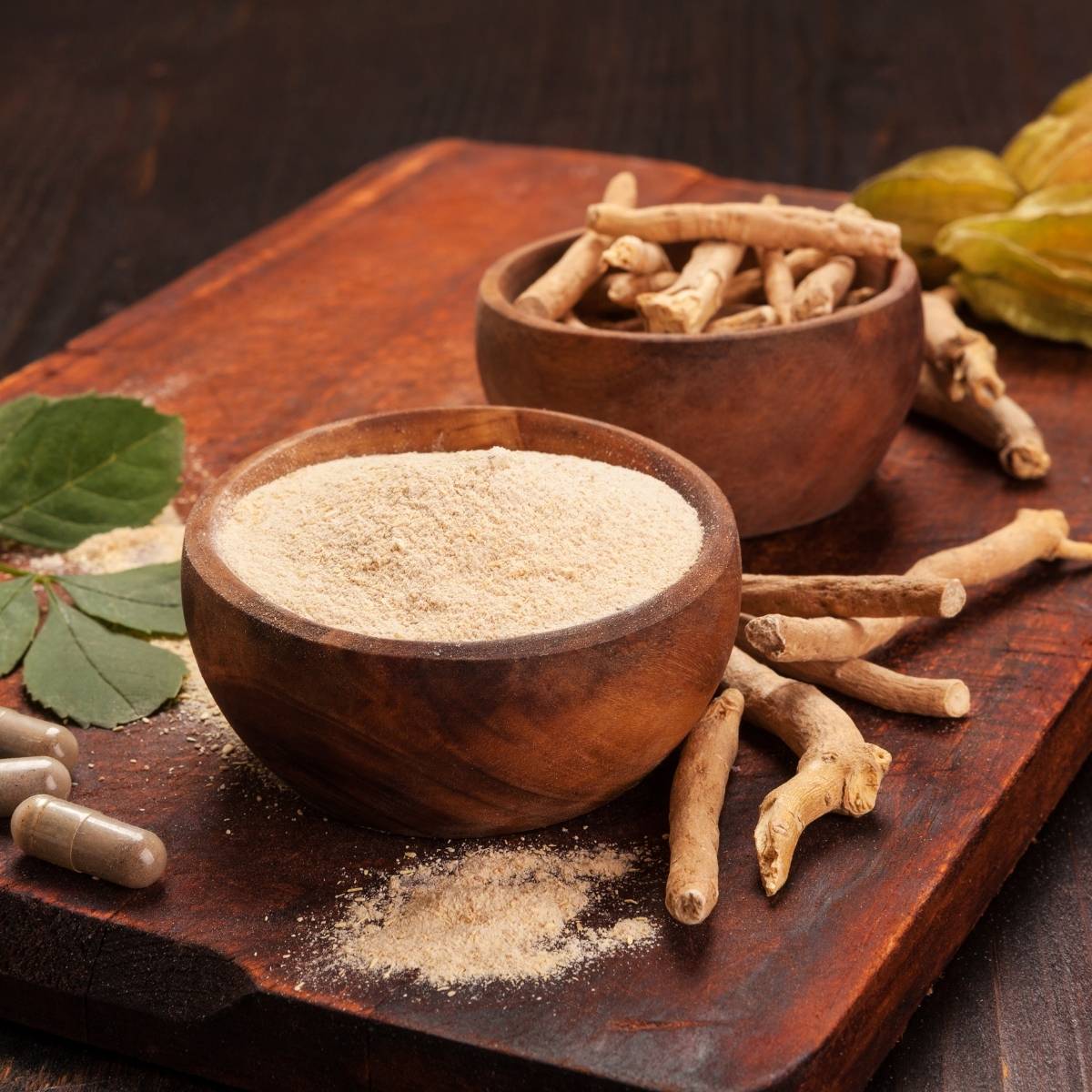In today's fast-paced digital age, maintaining focus and concentration is more challenging than ever. The constant influx of information from multiple sources, often called "information overload, " can be overwhelming and significantly impede our cognitive abilities. Balancing this avalanche of data requires us to develop and hone our concentration skills. A focused mind not only aids in assimilating information more effectively but also enhances productivity and creativity.
While there isn’t much we can do about the fast-paced world we live in, there are things we can do to help us focus more effectively. Some of the best foods for focus and concentration may help us on our quest to zone into our task at hand (no matter how boring that task may be! ).
The role food and diet plays in focus and concentration
Food and diet play a fundamental role in bolstering focus and concentration. The brain, much like the rest of our body, requires essential nutrients to function optimally. Consuming a balanced diet rich in fruits, vegetables, lean proteins, and complex carbohydrates can fuel the brain and enhance cognitive functions.
Imagine your brain as a high-performance sports car. Just like that car needs premium fuel to deliver optimum speed and performance, your brain needs top-notch nutrition to function at its best. When you feed your brain a diet of low-quality, ultra-processed food, it's like trying to run a Ferrari on low-grade gasoline — it will not perform as well, no matter how fine-tuned it is. And if you don’t give your car enough fuel, it will not run – similarly to how your brain functions if you undereat.
Nutrients linked to better focus and concentration
A balanced and nutrient-dense diet is ideal for people who want to enhance their focus and concentration. Among the many nutrients in our food supply, some are most strongly linked to better focus and concentration are:
Omega 3 Fatty Acids
Found in:
- Fatty fish like salmon, mackerel, and sardines.
- Flaxseeds, chia seeds, and walnuts.
- Plant oils such as flaxseed oil, soybean oil, and canola oil.
How it helps:
Omega-3 fatty acids, particularly DHA (docosahexaenoic acid) and EPA (eicosapentaenoic acid), play a vital role in enhancing brain wellness, focus and concentration. DHA is the most abundant fatty acid in the brain and is essential for normal brain development and function. EPA, on the other hand, promotes overall well-being of the brain.
Magnesium
Found in:
- Leafy green vegetables like spinach and Swiss chard.
- Nuts, especially almonds, cashews, and peanuts.
- Seeds, including pumpkin seeds, chia seeds, and flaxseeds.
How it helps:
Magnesium is a mineral that supports healthy brain function by regulating neurotransmitters, which send signals throughout the brain and nervous system. A magnesium deficiency can lead to neurological concerns that affect concentration and memory. Magnesium based drinks are a great way to add magnesium to your daily routine.
B Vitamins
Found in:
- Green leafy vegetables like spinach, kale, and broccoli.
- Whole grains like brown rice and whole wheat.
How it helps:
B Vitamins, particularly B6, B9, and B12, are crucial for brain wellness and play a significant role in improving focus and concentration. A deficiency of B6 can lead to cognitive decline, poor concentration, and even mood disorders. Vitamin B9, or folate, is pivotal for proper brain function and mental and emotional health. It works in tandem with B12 to help create and regulate neurotransmitters such as serotonin, dopamine, and norepinephrine, all of which play a role in mood regulation and cognitive function.
Vitamin K
Found in:
- Green leafy vegetables like kale, spinach, and collard greens.
- Broccoli and Brussels sprouts.
- Fermented foods like natto.
How it helps:
Vitamin K is another vital nutrient that significantly bolsters cognitive function and focus. Vitamin K is involved in the synthesis of sphingolipids, a class of lipid molecules associated with cognitive performance. Further, it helps prevent oxidative stress. As a testament to its role, individuals with higher dietary intake of vitamin K have been associated with better memory performance and increased cognitive speed.
Lutein
Found in:
- Green leafy vegetables like spinach, kale, and Swiss chard.
- Corn, green peas, and carrots.
- Eggs (specifically egg yolks)
How it helps:
Lutein, a type of carotenoid found predominantly in green leafy vegetables, eggs, and other fruits and vegetables, also plays a significant role in supporting focus and concentration. Lutein is found in the brain's grey matter, which is responsible for processing information in the brain. Higher lutein levels in the brain have been linked to better cognitive performance in areas such as learning, memory, and focus.
Anthocyanins
Found in:
Blueberries, mulberries, black currants
How it helps:
Anthocyanins are the vibrant superheroes of the nutritional world, brilliantly colored and power-packed. They're responsible for your raspberries’ red color and blueberries’ blue hue.
But they're not just there for their good looks. These dazzling compounds are loaded with antioxidant properties.
Nootropics linked to better focus and concentration
Nootropics, often referred to as 'smart supplements', are a class of substances that aim to boost brain performance. They're like the brain's little helpers, working behind the scenes to enhance memory, creativity, motivation, and even mood. From caffeine to more complex supplements like racetams, nootropics are all about giving your grey matter the upper hand. But remember, while they might offer a quick cognitive boost, they're not a substitute for a healthy diet and lifestyle. So, before you start relying on these brain-boosting buddies, ensure you're also feeding your brain with a healthy dose of nutritious food and keeping it sharp with regular mental exercise.
Here are some popular nootropics that can help you on your quest for better focus:
Caffeine
Found in:
- Coffee beans.
- Tea leaves, particularly black and green tea.
- Cocoa beans, found in chocolate.
How it helps:
Caffeine, the beloved star of our morning rituals, can also help boost our focus. Think of it as the lively cheerleader for your brain. But instead of pom-poms, it uses adenosine receptors. Normally, adenosine - a by-product of brain activity - binds to these receptors and slows down neural activity, making you feel tired. But caffeine, which has a composition similar to adenosine, can essentially “block” adenosine’s ability to bind to the receptors, resulting in an increased feeling of alertness.
Just remember, our darling caffeine can be a bit over-zealous, so moderation is key!
L - Theanine
Found in:
- Green tea and black tea.
- Certain types of mushrooms.
- Moment drinks
How it helps:
L-Theanine, a popular compound found in true teas (like green tea), is like caffeine's mellow buddy that doesn't cause a fuss but gets the job done.
L-Theanine promotes the production of alpha brain waves, which are associated with a state of "wakeful relaxation". That's kind of like being in that 'in the zone' state where you're calmly productive and creativity flows smoothly. And when taken with caffeine, this compound can help to smooth out the jitters and keep the brain humming along nicely.
Curcumin
Found in:
- Turmeric Root
- Moment drinks
How it helps:
Curcumin, the active compound found in turmeric, is another powerful agent for brain well-being. Curcumin increases the level of Brain-Derived Neurotrophic Factor (BDNF), a type of growth hormone that functions in the brain. By increasing BDNF levels, curcumin effectively enhances neuron production, improving memory and concentration.
Functional Mushrooms linked to better focus and concentration
Functional mushrooms have been cited in recent research as powerful brain boosters, particularly in terms of focus and cognitive function. Because of this, many people lean on mushrooms for focus. Here are some functional mushrooms that may support better focus and concentration:
Lions Mane Mushroom
Lion's Mane mushrooms have been gaining recognition in the realm of cognitive health and are particularly known for their potential to enhance focus. These mushrooms contain two unique compounds, hericenones and erinacines, which are believed to stimulate the production of nerve growth factors (NGFs).
NGFs are proteins that play a critical role in maintaining and organizing neurons, the cells responsible for processing and transmitting information in the brain. By stimulating NGF production, Lion's Mane mushrooms may help to maintain the health and functionality of these neurons. This, in turn, can support mental focus, allowing information to be processed more efficiently and accurately. Lion’s Mane is found in Moment drinks.
Other adaptogens linked to better focus and concentration
Adaptogens are a unique class of healing plants and herbs that are known to help balance, restore, and protect the body. They have been used for centuries in Chinese and Ayurvedic healing traditions. These compounds help the body resist physical, chemical, or biological stresses, enabling it to "adapt" more efficiently to stressful situations. Hence, people love adaptogens for concentration.
Here are some adaptogens that are linked to better focus and concentration:
Ashwaganda
Ashwagandha, a renowned adaptogen, is highly recognized for its potential to enhance focus and concentration. Traditionally used in Ayurvedic medicine, this powerful herb has been linked to cognitive enhancement primarily due to its stress-relieving properties. By mitigating the impacts of stress on the body, Ashwagandha can effectively create a more conducive environment for mental clarity and focus. Ashwagandha is found in Moment drinks.
Ginseng
Ginseng is another adaptogen that has been traditionally used to enhance cognitive performance. It's particularly known for its potential to boost concentration and focus. Ginseng may enhance brain functions such as memory, behavior, and mood. Ginseng is found in Moment drinks.
Table: Brain Boosting Food & Ingredients and How They Work
|
Choosing the right foods can be the secret weapon to maximizing focus and concentration. A cup of tea a day could keep the mental fog away, thanks to the dynamic combination of the stimulating effects of caffeine and the calming properties of L-Theanine. Topping off your meals with a serving of antioxidant-rich berries can provide the extra brain booster. And drinking beverages with ingredients that support focus and concentration, like Moment drinks included in their Focus and Memory collection, can help fuel your body with many helpful compounds conveniently.
As they say, you are what you eat, and in this case, you could very well eat your way to a focused and alert mind!
Disclaimer: The content on this blog is for informational purposes only and not intended as professional advice. We make no guarantees about the accuracy or completeness of any information provided. Use of this information is at your own risk.





![Alcohol Replacement Drinks - What are the Healthiest Alternatives to Alcohol? [Updated 2023]](http://drinkmoment.com/cdn/shop/articles/alcohol_replacement_drinks_-_what_are_the_healthiest_alternatives_to_alcohol_updated_2023.jpg?v=1690209665)

